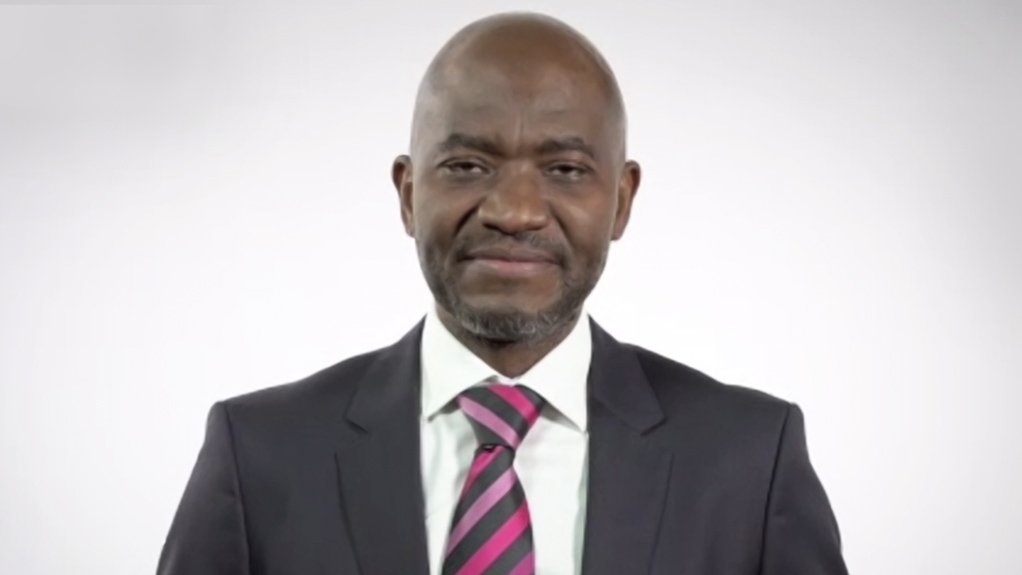South Africa’s grid constraints are continuing to cast a shadow over the Renewable Energy Independent Power Producer Procurement Programme (REIPPPP), the seventh bidding round for which was launched in December for 3 200 MW of onshore wind and 1 800 MW of solar photovoltaic (PV) after months of delay.
Independent Power Producer Office head Bernard Magoro told prospective REIPPPP Bid Window Seven (BW7) bidders during a virtual conference on January 17 that the delays were largely attributed to concerns over the availability of grid-connection capacity in the wind- and solar-rich Eastern, Western and Northern Cape provinces.
Various interventions and solutions had been considered following the partial failure of BW6, during which none of the wind projects vying for a 3 200 MW allocation were selected as preferred bids after Eskom indicated that the grid capacity on which they were premised had been consumed. Therefore, only bids for 1 000 MW of solar PV advanced to the preferred-bidder stage.
The development resulted in Eskom introducing an interim grid allocation solution that departs from the previous ‘first come, first served’ approach to one that prioritises so-called ‘shovel-ready projects’, while it also sought approval for a new ‘gated’ approach that would enable it to set aside specific capacity for public and private procurement cycles.
Eskom also indicated that it would adopt a new curtailment framework that could unlock immediate connection capacity in those areas that are described in its most recent Generation Connection Capacity Assessment as having ‘zero’ capacity. The document indicates that there is 19.9 GW of grid capacity elsewhere in the country, however.
Both proposed solutions have been submitted to the National Energy Regulator of South Africa (Nersa) for noting and approval but they have not been integrated into the BW7 request for proposals (RFP). It does, however, include a modest change to the curtailment approach by removing the previous threshold restricting compensation for energy than could not be absorbed by the grid so as to “optimise the management of available grid capacity”.
In addition, BW7 allows for bidders to bid based on grid-connection cost estimate letters (CELs) and valid budget quotes (BQs), instead of CELs alone.
There is also potential for bidders to access capacity recovered as a result of the expiry of BQs for projects that failed to achieve financial close under both BW5 and the Risk Mitigation procurement programme. Eskom announced the expiry in early January of five Risk Mitigation BQs and there is a likelihood of further expiries arising from BW5.
Nevertheless, prospective bidders for the allocation in REIPPPP BW7 could have to rely heavily on prospects outside of those regions with the most potent renewable resources, while Nersa continues to consider the new curtailment and grid allocation frameworks for future rounds.
MORE RENEWABLES, BATTERY & GAS PROCUREMENT SOON
Magoro indicated that BW8 for another 5 000 MW of renewables could be launched before the end of government’s financial year, which runs to the end of March. Likewise the office is also preparing a third battery storage auction for 616 MW and a Coega-specific gas-to-power bid window, which will have a request for qualifications phase ahead of the RFP.
These would be in addition to the second bidding round under way for 615 MW of battery storage and the inaugural gas-to-power auction for 2 000 MW.
The grid, Magoro said, would remain a challenge for future rounds. But he expressed optimism that all the components proposed for managing grid capacity and grid allocations would be in place for the upcoming bid windows.
Besides the modification to BW7’s approach to curtailment, the other new elements introduced as part of the RFP include:
- A reduction, from 100% to 80%, in the government guarantee framework should Eskom, which remains the buyer, fail to pay, while the 100% guarantee remains in place for any government termination as a result of legislative changes;
- A stipulation that 49% of the project be owned by a South African entity; and
- The creation of a reserve bids category, which government could approach should any preferred bidder fail to advance their projects to financial close within the stipulated timeframe.
As with BW6, the economic development components of a bidder’s submission, such as black ownership and local content, will not be a qualifying criteria, but will be scored, with price making up 90% of the evaluation and economic development 10%.
The RFP is open for solar PV and onshore wind projects of between 50 MW and 240 MW and bids should be submitted by April 30, with the deadline for the application to Eskom for CELs having been stipulated as being January 31.
Magoro acknowledged that the timeframes were short but said there was no intention to extend the deadline, although it could seek to separate the BW7 submission date for the second battery storage bid window submission date, which is also currently set down for April 30.
Bid evaluation is expected to take up to three months following submissions and preferred bidders will be given six months to advance their projects to financial close.
A period of 24 months has been set for construction, despite growing concerns over the country’s logistics constraints, particularly at the ports.
EMAIL THIS ARTICLE SAVE THIS ARTICLE ARTICLE ENQUIRY
To subscribe email subscriptions@creamermedia.co.za or click here
To advertise email advertising@creamermedia.co.za or click here











